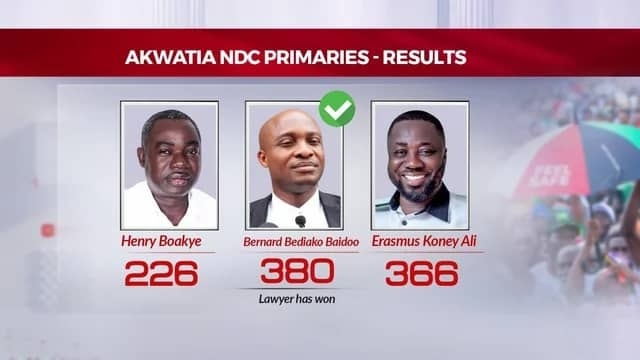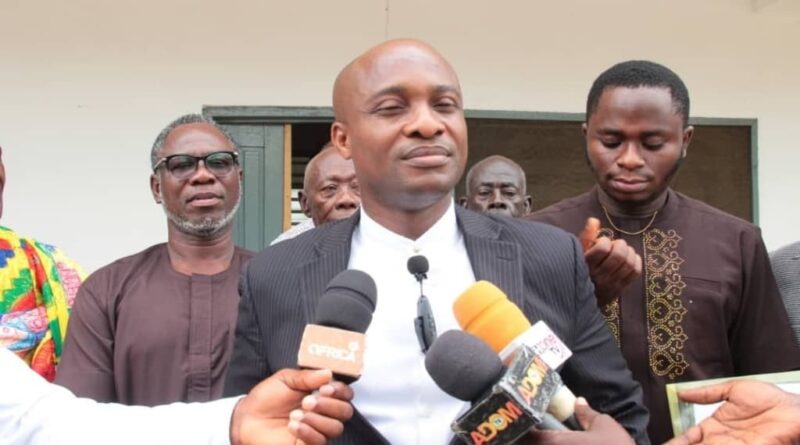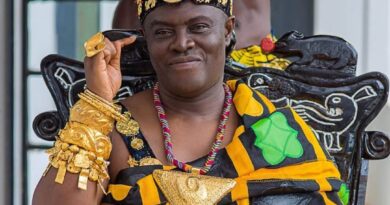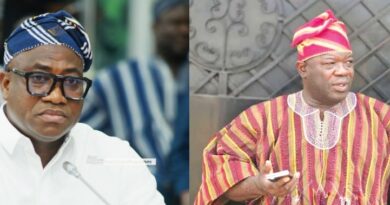Bernard Bediako Baidoo Emerges as NDC’s Bold Choice for Akwatia Race

Firstly, Bernard Bediako Baidoo captured the NDC’s Akwatia ticket in a heated, high-stakes internal election.
Then, he beat Erasmus Koney Ali by just 14 votes in a tense, neck-to-neck battle.
Next, Henry Yiadom Boakye trailed with 226 votes, despite once representing the constituency in Parliament.
Meanwhile, 975 delegates cast their ballots, with three votes rejected and 101 missing.
Afterward, Electoral Commission officer John Appiah Bamfo declared Baidoo as the official winner.
Immediately, Baidoo expressed heartfelt gratitude to delegates and thanked his rivals for a clean, peaceful race.
Subsequently, he called for unity, asking all factions to join forces for the bigger goal ahead.
Thus, the by-election on September 2 becomes the next battleground following Eric Kumi’s passing.
Therefore, Baidoo urged supporters to work harder and smarter to win back the seat from the NPP.
Accordingly, he reminded the crowd that change demanded unity and loyalty across every party base.
Still, he acknowledged internal competition but insisted the future required collective commitment over personal ambition.
Moreover, he stressed that his win belonged to the full NDC family—not one individual.
Indeed, his message resonated with optimism and a hunger for transformation.
Likewise, he claimed that voters were exhausted with the NPP’s broken promises and weak results.
Consequently, he positioned himself as the agent of fresh hope under President John Mahama’s agenda.
Notably, his speech struck emotional chords, igniting applause across delegates and observers alike.
Hence, Baidoo’s victory injected renewed energy into the NDC’s campaign engine in Akwatia.
Soon, his campaign team mobilized, launching community meetings and door-to-door engagements.
In fact, many believe his legal background and calm presence offer strategic credibility and grassroots appeal.
Furthermore, Eastern Regional Minister Rita Akosua Adjei Awatey praised the delegates’ maturity and peaceful voting conduct.
Similarly, she commended Baidoo’s leadership and pledged her full backing for the by-election push.
Before long, the constituency began buzzing with plans, posters, and campaign chants.
After all, this wasn’t just about replacing a candidate—it symbolized reclaiming a lost political stronghold.
Because unity fuels power, Baidoo emphasized collaboration across youth, elders, and loyal foot soldiers.
Without delay, he called on his former contenders to contribute actively and heal internal wounds.
Since time was short, every effort mattered.
Still, he remained confident that collective focus would defeat the NPP machine.
Thus, unity wasn’t optional—it was urgent.
Finally, Baidoo’s rise carries meaning beyond numbers.
Rather, it represents readiness, strategy, and renewed hope.
Until voting day arrives, his name will echo louder across homes, markets, and political circles.
Altogether, Bernard Bediako Baidoo has lit the torch—now, it must burn through to the ballot box.




